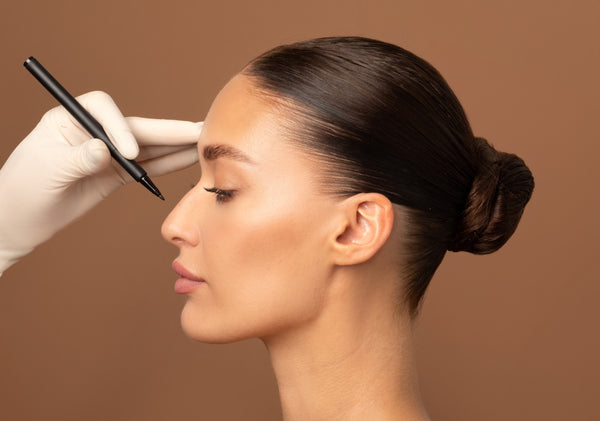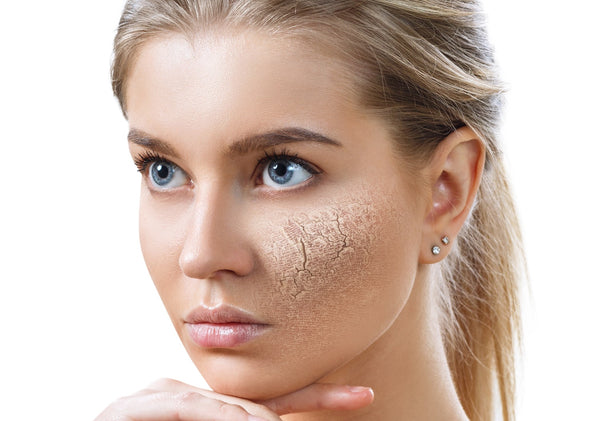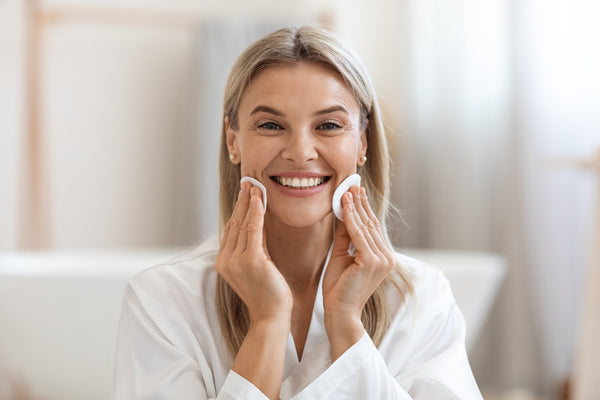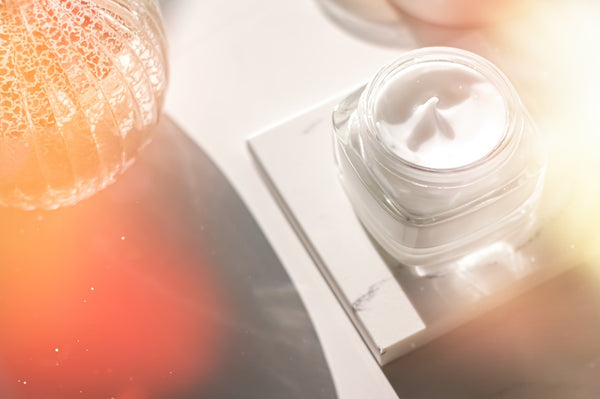How to Prevent Swollen Eyes In The Morning

Why Do Your Eyes Get Swollen in the Morning and How to Prevent It
Waking up in the morning with swollen eyes is a beauty disaster, more so if you have just had your beauty sleep. Not only are swollen eyes conspicuous, but they may also signify an underlying health condition.
However, puffy eyes often result from things we can control and are not a significant health concern. For instance, sometimes we get swollen eyes from allergies, too much screen time, or inadequate sleep.
You can resolve swollen eyes by changing some habits. However, if the swelling worsens, it may be time to contact a dermatologist or get a medical check-up to rule out health conditions like conjunctivitis. Read on to learn more about the causes of swollen eyes in the morning.
11 Reasons Why You Wake Up With Swollen Eyes
1. Lack of Sleep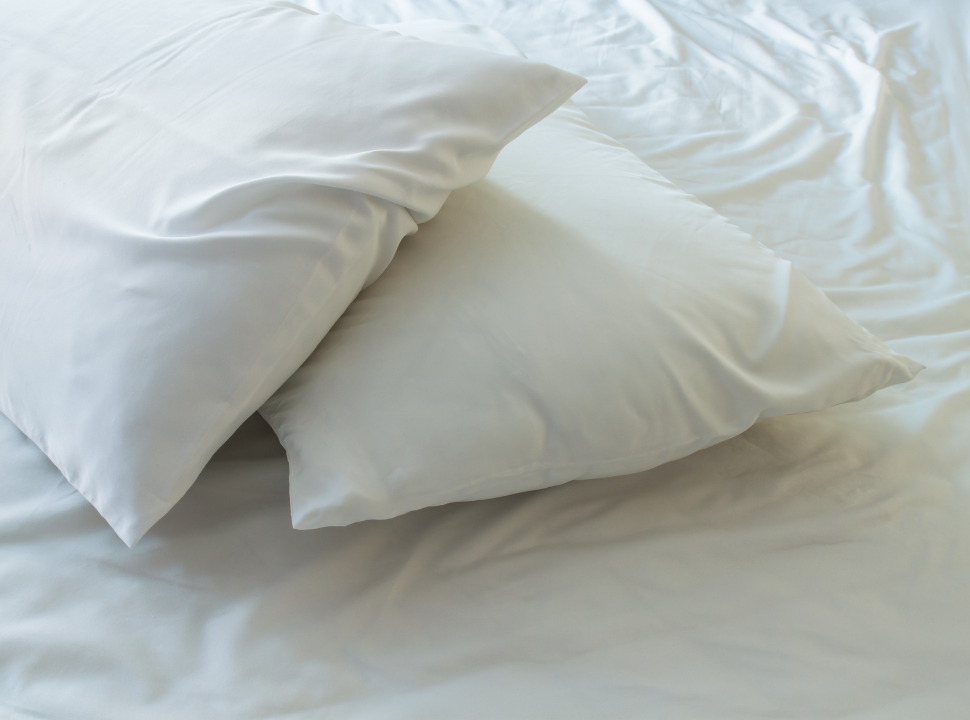
Your eyes get strained when you don't get enough sleep. As a result, blood retention increases in your eyes, and this makes your eyes appear swollen and strained. In addition to looking puffy, you can get dark circles under your eyes.
Experts recommend that you get at least 8 hours of sleep to get adequate rest for your eyes and your body. Additionally, too much screen time is one of the causes of inadequate sleep or disrupted sleep patterns. So, it would be best if you created a sleep schedule and stuck to it.
Other helpful tips to help you fall asleep include the following:
Finishing all work at least one hour before sleep time
Turning off your laptop, phone, television, and any other distractions
Taking a shower before sleep to make you more comfortable
Ingesting too much salt is harmful to your health. It will help if you reduce the amount of salt in your foods. So, instead of adding salt to your food to taste, you could try seasoning it with herbs and spices.
Too much salt causes your eyes to retain fluid and appear puffy. Additionally, they seem more swollen in the morning since we don't drink water during sleep.
Sauces and too many spicy foods may also cause swollen eyes. Avoiding salty and spicy foods and hot sauces would be best to save your eyes from further damage. Moreover, taking a lot of water before bed will help wash away excess salt and reduce puffiness in your eyes.
3. Allergies
Eye allergies can cause redness, irritation, and swelling in your eyes. Allergens can be anything. For instance, sleeping in a dusty room or just washing your sheets with a new fabric softener may irritate your eyes and cause puffiness. Alternatively, it may be a new plant that you just added to your room.
Allergens prompt the production of histamines which may make your eyes swollen. You can do the following things to ensure you don't have allergic reactions:
Check to see if a fabric softener may react to you before purchasing it
Close your windows at night to keep external allergens like dust and pollen away
Research plants before purchasing them to avoid buying harmful plants
Invest in a fan to help eliminate allergens in your bedroom
Use eye drops before bed to add moisture to your eyes and eliminate irritants.
Visit your optician. The specialist may give you something to soothe the allergy.
Eye conditions like conjunctivitis may be another reason why puffiness in your eyes is not reducing. However, you cannot self-diagnose, so you should visit an optician before purchasing any medicines. Conjunctivitis may result from untreated allergies or reactions to contact lenses. You can tell you have an eye problem if your eyes show the following symptoms:
Red eyes
Headache
Night blindness
Dry eyes
Tearing
Sticky discharge from your eyes
If you are suffering from conjunctivitis or any other eye problem, do the following:
Avoid touching and rubbing your eyes with unclean hands
Wash your eyes gently with warm saline water or eyewash
Clean any discharge from your eyes with a wet washcloth
Refrain from wearing eye makeup as it may irritate your eyes further
Don't wear any contact lenses during your sleep, as they may aggravate the situation
Avoid sharing washcloths, as conditions like conjunctivitis are highly contagious
Using eye drops before bed

Contact lenses are helpful but may irritate your eyes if you sleep with them on. When left on for the whole night, contact lenses may prompt bacteria growth in your eyes, and this may cause them to swell. So, refrain from sleeping with contact lenses. Use some eye cream or eye drops if you feel irritated at night.
6. Too Much Alcohol IntakeDrinking too much alcohol strains your eyes. In addition to making them red, it can make them puffy. How does this happen? If you spend the whole night partying and have school or work tomorrow, you won't get 8 hours of sleep. Your eyes will look red and puffy. Moreover, alcohol leads to dehydration and dilates your blood vessels which then causes your eyes to swell. Taking a lot of water after drinks helps prevent dehydration and swelling of your eyes.
7. Not Drinking Enough Water
Not drinking enough water is the quickest way to get dehydrated. Additionally, if your body loses water, your eyes will show signs of dehydration. They may appear sunken and puffy. Your eyes may appear puffy at night, mainly if you don't drink enough water before bed. Many people refrain from taking water at night to avoid many trips to the bathroom. While this is true, waking up to go to the bathroom is a small price to pay for clear and unswollen eyes. Also, you can take a few sips of water regularly throughout the night instead of waiting to take large amounts of water when your bedtime is near. Also, setting a reminder on your phone would be helpful if you often forget to hydrate.
8. Rubbing Your EyesResisting the urge to itch or scratch your eyes is not easy. More so if you have an eye allergy or are suffering from an eye condition. However, rubbing your eyes irritates their capillaries
and blood vessels, disrupting your eyes' blood supply. Your eyes get swollen if you are not getting enough blood supply. It will help if you avoid rubbing your eyes. Apply eye cream or put in eyedrops if the urge is irresistible.
Massaging your eyes in a circular option is an excellent alternative to rubbing or itching. Massaging them helps relieve the urge to itch. In addition, it helps improve blood circulation. Your eyes won't swell when there is enough supply of blood.
9. Stress
You heard it right; stress signs can show in your eyes. Work-related or relationship stress can increase cortisol levels and alter the salt balance in your eyes. In addition, crying a lot from stress or anxiety may cause strain and swell to your eyes. Some helpful tips to help you cut down on stress include the following:
Meditating
Yoga
Talking to a therapist
Talking to a trusted friend or family member
Collagen holds the fat under your eyelids. However, collagen may weaken with time due to genetics, aging, and health conditions. Not having enough collagen under your eyes can cause swelling and puffiness. There are many ways you can increase the collagen under your eyes, and they include:
Using hyaluronic acid to thicken the skin under your eyes
Moisturizing
Using eye creams
Applying retinol
Getting cosmetic surgery (fillers) to boost your collagen
During menstruation, your body produces hormones at high levels. Your eyes retain water which may cause them to swell. However, the swelling goes away by itself, and it's not something to stress over.
How Can I Get Rid of Swollen Eyes?
You can resolve swollen eyes regardless of whether you have them naturally or because of any of the causes mentioned above. Here are a few ways to prevent swollen eyes:
1. Applying a Cold CompressYou can achieve this by placing a wet washcloth under your eyes and applying gentle pressure on the skin under your eyes. You can also wrap ice cubes in a cloth and apply them to your eyes. Doing this regularly will help reduce swelling in your eyes.
2. Applying Tea Bags or Cucumber Slices
Cucumber is a standard product used in many beauty creams. It is a natural anti-inflammatory and has a healing effect on the skin. Cutting thin slices of cucumber and applying them to your eyes will help reduce swelling.
Teabags, like herbal ones, contain caffeine, which can reduce swelling when it penetrates your skin. Additionally, wet tea bags on closed eyelids can help improve blood circulation significantly. Refrigerated tea bags work best as the cooling effect helps reduce swelling.
3. Massaging the Swollen Parts of Your EyesMassaging your eyes helps reduce fluid retention and build-up that causes swelling. The motion of your fingers reduces fluid retention hence eliminating bulge. However, it would help if you rubbed your eyes gently to prevent straining them, as the skin under your eyes is very delicate. Massaging your eyes daily or a few times in the morning is efficient, and you will notice improved results within a few days.
4. Applying Chilled Cream or SerumEye creams soothe the skin and help eliminate puffiness, dark circles, and tired-looking eyes. Chilling eye creams and serums before applying them to your eyes go a long way in reducing puffiness in your eyes. Investing in a good eye serum or eye cream prevents you from getting puffy eyes in the first place.
5. Apply Some ConcealerExperts recommend not using eye makeup when you have swollen eyes. However, walking around with puffy eyes or going to work may be stressful. Therefore, it would help if you used only a little concealer. Concealers do an excellent job of hiding puffiness and dark circles. However, this option should be used as a last resort, as too much eye makeup is unsuitable for your eyes.
6. Invest in Glasses to Protect Your Eyes
Whether you have an eye condition or your eyes are getting strained, good glasses will do you a lot. You can schedule an appointment with an optician; they will issue you with the right glasses to help protect your eyes. Mirrors help to reduce strain caused by a lot of reading or too much screen time. With the right glasses, you can handle as much work as possible without worrying that the light from the skin will affect your eyes.
7. Refrain From Crying a LotCrying is healthy when it comes to relieving stress. However, too much crying isn't fit for your eyes. Crying disrupts the blood flow to your eyes, causing eye strain, redness, and puffiness. Finding other ways to relieve stress may help prevent crying. Different ways to cope with stress include doing something you enjoy or discussing what's stressing you out. Additionally, crying causes dry eyes, which may cause your eyes to swell. To get rid of swollen eyes from crying, you could:
Use eye drops as they add moisture to your eyes
Apply some mild eyeliner
Use color-correcting concealers to hide the puffiness
The Bottom Line
Swollen eyes are more visible in the morning since fluid builds up in your eyes when you are asleep. Some causes of swollen eyes in the morning include crying, eye strain from too much screen time, and not getting enough sleep.
Eye serums, eye creams, and eye drops come in handy in reducing puffiness around your eyes. In addition, massaging your eyes gently and taking lots of water helps improve blood circulation around your eyes, which causes swelling.
However, if you try everything but the swelling persists or worsens, it would be best to visit an optician. They may recommend medication, eyeglasses, or creams to reduce the swelling. Also, seeing a specialist is the only way to know if your continued eye swelling results from an eye condition like conjunctivitis.


